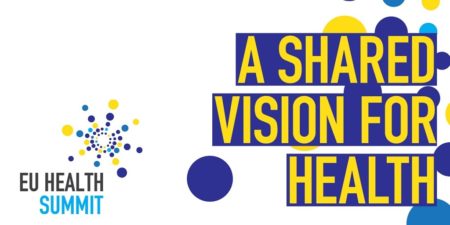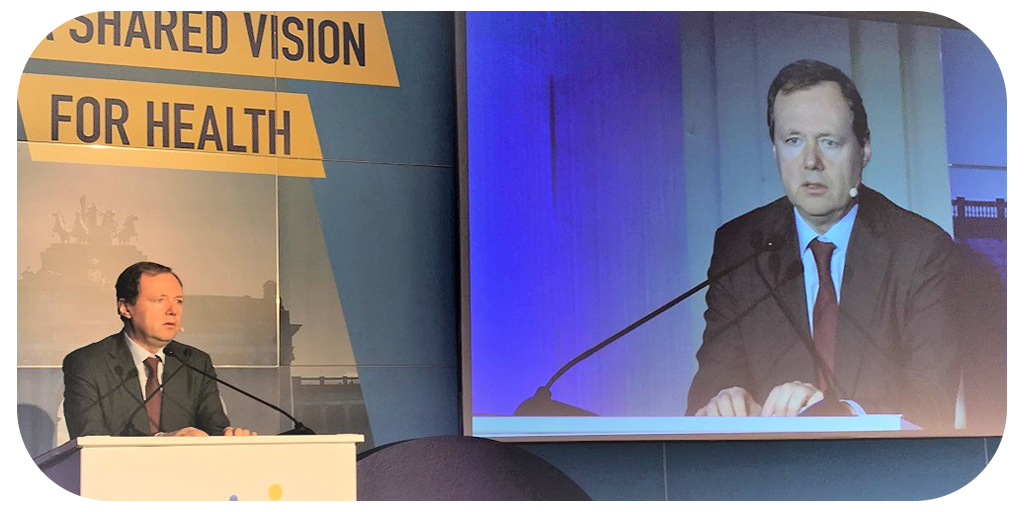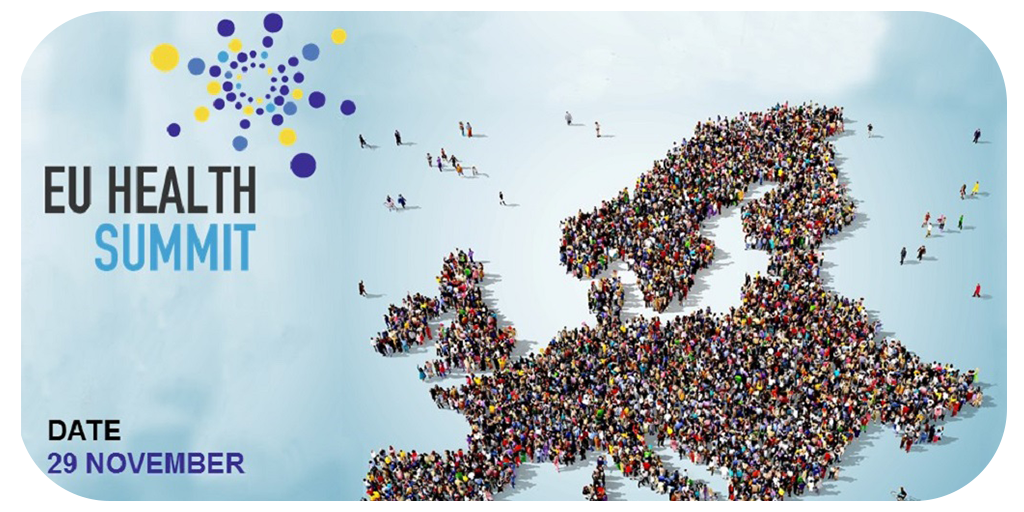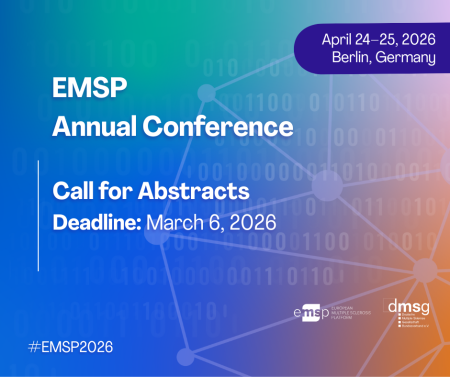
EU Health Summit
21.12.2018Ahead of the Summit the 28 partner organisations including the European Multiple Sclerosis Platform (EMSP) have put together recommendations for a shared vision for the future of health in Europe. Our main objective was to call upon the next European Commission and European Parliament to bring about necessary changes. We presented our recommendations on 29 November 2018 in Brussels, where we called for the European Commission to have the tools and governance in place, for ensuring a health perspective in all their policies.

Mental health as priority for the future healthcare landscape
Europe has massive social inequalities in health outcomes, while gains in life expectancy have slowed down over the last five years. We can undoubtedly foresee that mental health will have a crucial role in the future, due to its terrible situation in terms of unmet needs and low quality of care provided. The cost of mental health in Europe rises to 600 billion euros a year what is way more than we are investing in its treatment and prevention.
“We should build our health system on the needs of the people. “
– Robert Madelin – Chairman Fipra International
The value of multi-stakeholder’s collaboration on health
While healthcare in Europe costs 1500 billion euros a year, at least 300 billion euros are wasted on a yearly basis. Nathalie Moll emphasized the importance of data collection that could eventually lead to a more effective health care system bridging this huge gap:
“We desperately need data to understand outcomes, what patients really want, in order to improve their quality of life. We need to capture all that data.”
– Nathalie Moll – Director General of EFPIA

Threats and opportunities for health in Europe ahead of the 2019 EP elections
Members of the European Parliament, Tiemo Wölken (S&D Germany), Lieve Wierinck (ALDE, Belgium) and Cristian-Silviu Busoi (EPP, Romania) chaired the high-level panel discussion on threats and opportunities for health in Europe ahead of the 2019 EU elections.

Our Director of External Affairs, Christoph Thalheim (EMSP) seized the opportunity to ask the panellist MEPs, at what extent the European institutions foresee to financially support European patient organizations. Even though none of the panellists was aware of any current funding problem, each one of them promised to get this issue back to the European Parliament. They all agreed that the despite increasing patient involvement in governmental decisions, these efforts must be further multiplied. European institutions are ready to find concrete solutions for funding and offering political support for patient organizations’ initiatives.
Research and Innovation
Wolfgang Burtcher Deputy Director General of DG RTD European Commission underlined that partnership is a cornerstone for excellence research with the inclusion of academia, business, pharmaceutical industry, public health authorities and patients.
Mr. Burtcher added that even though the Innovation Medicine Initiative (IMI) reached a very successful public-private partnership, there is a need to further evaluate health research results for the purpose of accountability. Firstly, through private stories, secondly through assessment of health research that takes time. Therefore, the key element is excellence research for the benefit of patients.
On the other hand, according to Karin Sipido, Chair of the Scientific Panel for Health, research landscape in Europe is very fragmented.
“There is a lack of comprehensive strategy for health research and a lot of room for improvement. We need to think together and go for smart funding that could ultimately result in better health. Than we can assess. Health research must be participative, and patient centred. All the stakeholders must be around the table.”
Sarunas Narbutas from Youth Cancer Europe emphasized that “Western European countries are getting the grants and Eastern European countries are only becoming partners. A lot of research should be done at national level, but we do not have enough resources to generate the necessary data.”.He highlighted the late start of patient engagement and called for a disruptive approach that could bridge the gap of funding fundamental research.
eHealth, Health Data and Digital Health
“We need digital in healthcare.” – said Roberto Viola, Director General of DG CNECT. “We need to be competitive and we need new solutions with Artificial Intelligence (AI) in data. Digitalization can bring this desired outcome.”
Mr. Viola laid down the main priorities of the Commission’s strategy for the digitalization of healthcare:
- Every citizen must have access to healthcare.
- Every citizen has the right to all the medical data and the right to decide where that data goes.
- The European Commission will publish a recommendation in the beginning of 2019 to create a full portable dataset that will launch us to the era of data driven medicine.
- The EU wants to create a common data space in Europe.
- The EU wants to create data driven medicine by sharing data and using supercomputing.
- DG SANTE, DG RTD and DG CNECT will be working closely together in digital health.

The challenges of today, the solutions for tomorrow
Finally, Nicola Bedlington, Secretary General of the European Patients’ Forum reiterated the importance of partnership for patient community. She reminded the panel of the work of EPF in terms of digitization and digital health. A joint effort with several partners to generate change driven by patient benefits. Mrs. Bedlington called for the involvement of patient organizations in a more strategic level.
As of the Q&A session, the audience unanimously agreed on a need for more detailed data and research to create policies.

Read the recommendations here: key recommendations for a healthier Europe and recommendations in full.
 Your Account
Your Account



